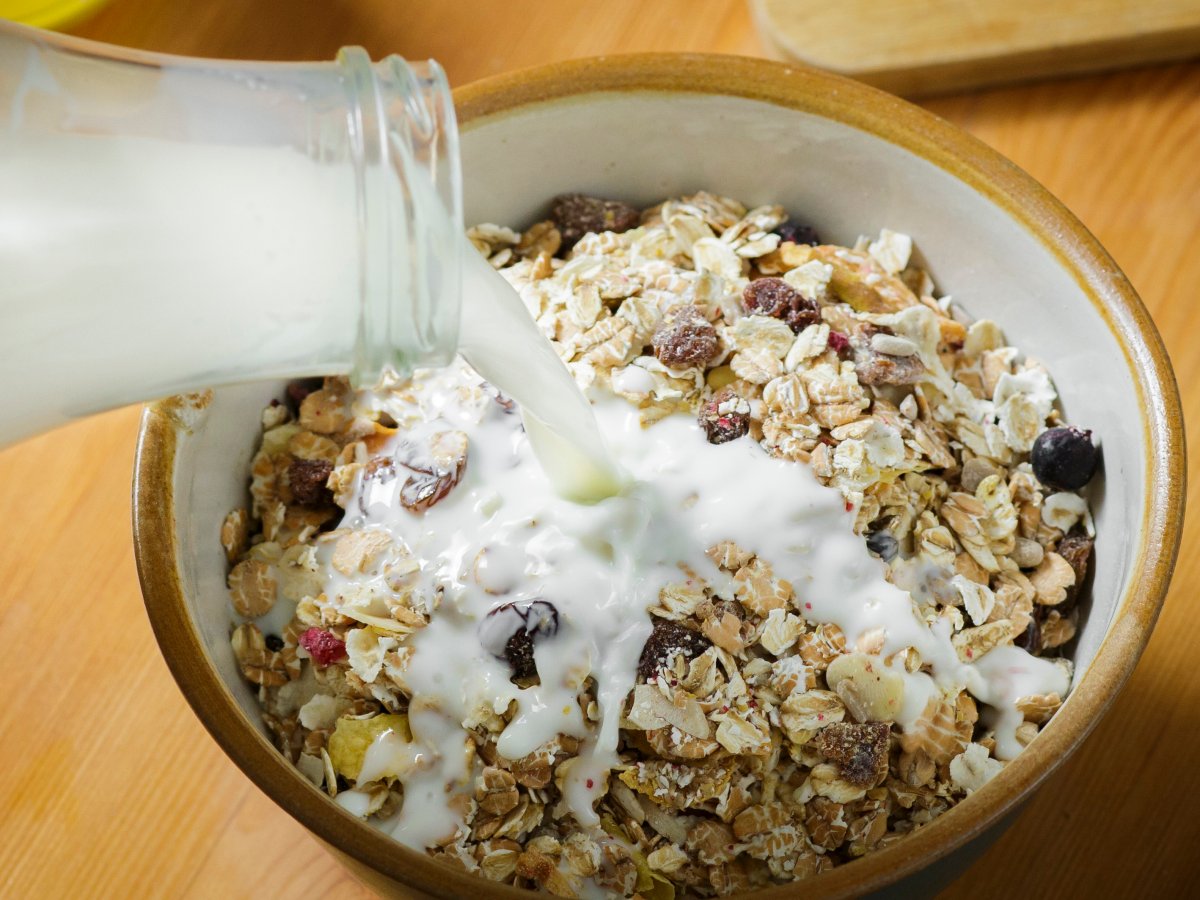The health-minded among us know that a clean diet and regular exercise are the keys to successful, weight-conscious living. But that formula doesn’t always guarantee a pleasing number on the scale or an enjoyable jeans shopping experience. The culprit? Your metabolism.

It’s a common word uttered by those who can’t shed weight easily and by those who seemingly eat what they want without gaining an ounce. That’s because your metabolism is responsible for all the chemical reactions involved in maintaining your body. It converts what you eat and drink into energy, thus nutrition and activity dictate its function and its speed.
While a slow metabolism is linked to medical conditions like Cushing syndrome and hypothyroidism, oftentimes it’s a side-effect of poor or misleading dietary decisions like:
#1 You’ve cut out dairy
A McMaster University study concluded that a diet high in protein-rich dairy foods can help people gain lean muscle and trim belly fat. The researchers found that overweight women who consumed three to seven servings of dairy per day burned more fat, gained more lean muscle and reported higher energy levels than those who consumed little to no dairy. And since muscle mass helps keep your metabolism revving at top speed, it helps your body burn calories even while at rest. Try to incorporate at least three servings of milk, yogurt or cheese into your daily diet.
READ MORE: Scientists debunk popular myths about obesity, exercise and weight loss
#2 You’re not eating enough fat
#3 You’ve cut out carbs

Get weekly health news
Ever since the Atkin diet entered the mainstream, carbs have been getting a bad rep. And while bingeing on pizza isn’t the best plan if you’re looking to shed pounds, cutting out carbs entirely can roadblock your weight loss goals, especially if you’re active. “During exercise, your muscles demand glycogen from carbohydrate stores in your body,” Brian St. Pierre, a Precision Nutrition coach, said to Prevention. “If you don’t consume enough carbohydrates, your glycogen levels will be too low and you won’t have the energy to exercise as intensely.” This, in turn, will cause you to burn fewer calories during your workout and fewer calories while you’re at rest, he notes. St. Pierre advises adding one serving size of a complex carbohydrate to every meal, like brown rice, sweet potato, whole wheat pasta or quinoa.
READ MORE: Pasta can help you stay slim, Italian study finds
#4 You’re not eating enough
Yes, cutting back on calories is a surefire way to lose weight, but there’s a big difference between kicking your afternoon cookie habit and sending your body into starvation mode. “Simply cutting back on calories as we’ve been told actually makes the situation worse,” Ludwig said in an interview with Well, The New York Times’ wellness blog. When we cut back on calories, our body responds by increasing hunger and slowing metabolism. It responds in an effort to save calories. It creates a battle between mind and metabolism that we’re doomed to lose.”
#5 You don’t eat breakfast
The cliches are true: breakfast is the most important meal of the day. Since our metabolism slows down at night, it takes food to rev it back up in the morning, which means breakfast skippers are afflicted with a sluggish metabolism longer. Breakfast should total anywhere from 300 to 400 calories, and comprise a mixture of high-fibre carbohydrates like bran and whole grain toast, and protein like eggs and yogurt.












Comments